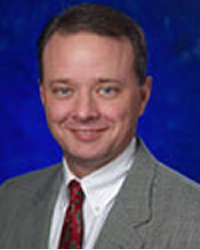VOLUME 28, Issue 1
ADVOCACY STARTS NOW

Emily L. Walker, MD
Advocacy is our way of sharing with others what our specialty is truly about and why it is important to have a Physician Anesthesiologist at the forefront of perioperative patient care. Often, the complex nature of our specialty is reduced to the popular fallacy that all we do is “put people to sleep and wake them up.” Because of this, it becomes imperative to reiterate the full extent of our skill set and responsibilities. Without thoroughly explaining to our family, friends and elected officials what our typical duties entail, it could be difficult to understand why such a rigorous training process is necessary. Our efforts through Advocacy are our chance to emphasize our role in keeping patients safe, to discuss the necessity of a clearly defined scope of practice, and to highlight the potential pitfalls of leaving a patient under the solo care of a practitioner who has not completed a full Anesthesiology residency. Advocacy not only protects our specialty and our livelihood, but also allows us to provide quality care and do what is in the best interest of our patients.

Russell K. McAllister, MD
TSA Editor
There are many ways to become involved in Advocacy at the resident level. First and foremost, it is essential to understand the key issues affecting our specialty. Annual meetings hosted by both the TSA and ASA educate residents about what is happening in our specialty behind the scenes. Another unique opportunity is the TSA Day at the Capitol, held each spring in Austin. This two day event consists of education about current issues and face-to-face meetings with elected officials. Additionally, the Texas Medical Association offers an annual TMA Advocacy Retreat, where residents have the opportunity to learn about legislative issues affecting all fields of medicine.
Once we understand what challenges are facing our specialty, it is important to take action. There are many things that are possible to do, even with our busy resident schedules. We can start by contributing to both the TSAPAC and the ASAPAC. These Political Action Committees allow us to get our foot in the door and have our voice heard with our elected officials. Even a contribution of twenty dollars will make a significant difference if every resident participates.
Additionally, it is important that we all register to vote and take the time to vote. Resources through the TSAPAC and ASAPAC help keep us informed about which candidates are supporters of our issues. Additionally, we can sign up to be a Key Contact for a representative or senator in our area. These personal relationships with elected officials can have a tremendous impact when issues of critical importance are brought forward in the State Legislature.
For those wanting to take their involvement one step further, it is possible to become a Resident member of a committee at TSA. Options include Governmental Affairs and TSAPAC, where residents can actively participate in the legislative process. At the ASA Annual meeting, residents can run for office on the ASA Resident Component Governing Council. Additionally, the ASA Advocacy Division hosts an ASA Anesthesiology Policy Research Rotation in Political Affairs. This is a four-week rotation in Washington, D.C. designed to allow residents to experience the political, legislative and regulatory factors affecting the delivery of patient care. This rotation has been approved by the American Board of Anesthesiology for residency credit. Furthermore, the TSA also recognizes one resident each year with the William H. King Advocacy Award. This honor is awarded to a single resident who has demonstrated excellence in advocating for the specialty of Anesthesiology.
Ultimately, the opportunities for residents are plentiful. Talk to your program director today about how you can become involved. In the end, if we do not do our part to personally participate in Advocacy efforts, then we are not doing everything we can to protect the future of our specialty. By becoming more informed and more involved, a strong foundation of young physician advocates will go a long way towards providing stability and prosperity for generations of Anesthesiologists to come.

